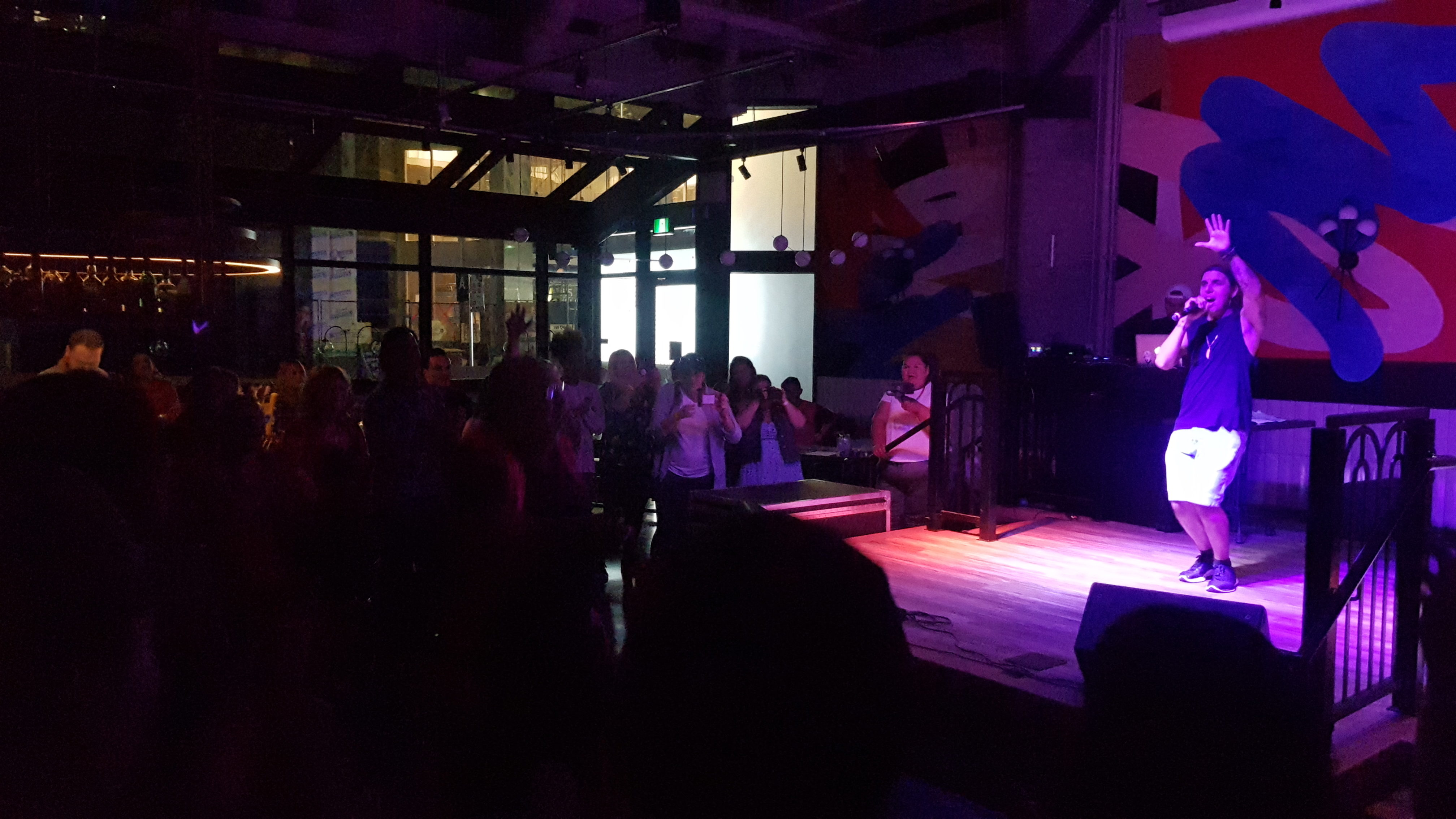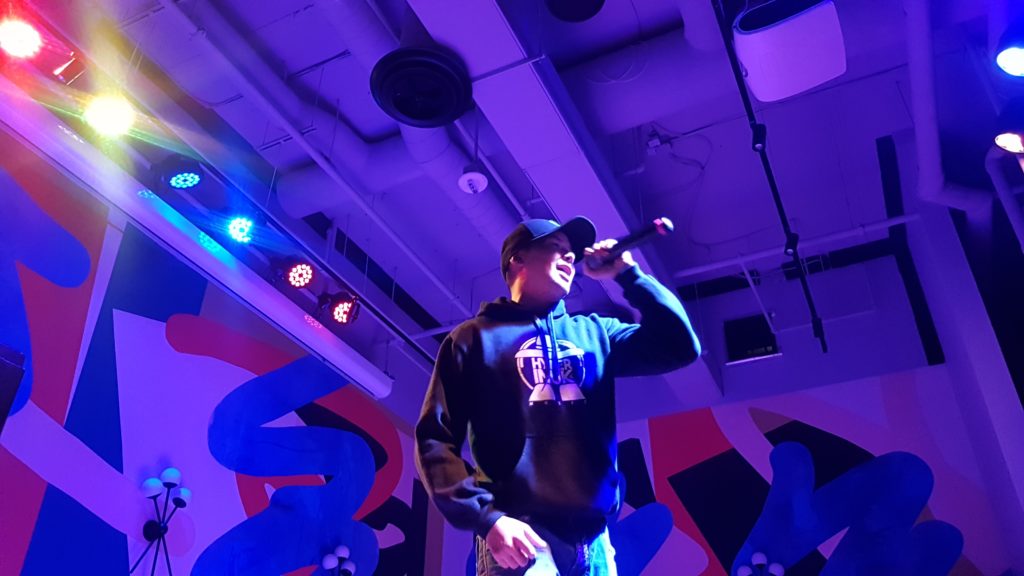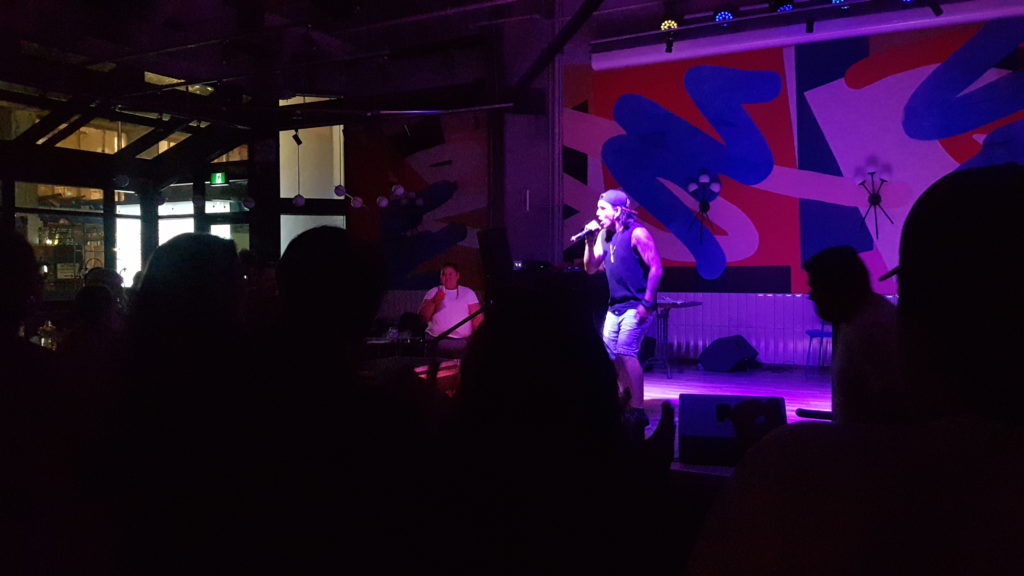Cody Coyote reemerges with Ma’iinganag

Ma’iinganag, which translates to “Wolves” in Anishinaabemowin, is Cody Coyote’s second full-length album which he released on August 16 at Queen St. Fare.
He hasn’t even hit his thirties yet but Cody Coyote has already lived through so much more than most.
Between grappling with intergenerational trauma, depression, and poverty – even witnessing his own family lose their home – nothing has ever come easy for this Ottawa-based Ojibwe/Irish hip-hop artist who traces his Indigenous ancestral roots to Matachewan First Nation.
But judging by his stage presence, he’s not letting any of it slow him down. To the contrary, through his music and motivational speaking, Cody Coyote is determined to share every last
detail of his story with bold ferocity.
Coyote’s lyrics are simple, but they stick. “Don’t Give Up” off his first studio album in 2017, Mamawi, fuses the colonial English language with the native tongue Coyote strives to keep
alive: Anishinaabemowin. Mamawi (which means “all together” in Anishinaabemowin) sought to bring about a sense of “togetherness, love and unity.”
His second album Ma’iinganag (which translates to “Wolves” in Anishinaabemowin) builds on this same positive message, folding Anishinaabemowin lyrics into English words and rhymes, but with a slightly more pop-centered/electronic dance vibe.
“We can learn much from wolves,” Coyote explains of his new album title. “Often the alpha of the pack will lead from the back – allowing the elder wolves as well as their young to set the
pace from the front. The teaching I’ve taken from this is to listen, to understand, to respect and to protect those I care for.”
Today Coyote leads by example: he lives a completely sober life, goes to the gym often, writes every chance he can get, and takes his culture and teachings as an Indigenous man seriously.
It is also not uncommon to find Coyote checking in on his friends who remain on the street.
Given the staggeringly high rate of urban Indigenous homelessness in Ottawa and elsewhere – not to mention his own lived experience growing up hungry and at risk of homelessness – to Coyote, following the wolf teaching by committing to sobriety and moving forward “in a good way” makes a lot of sense.
“When I was younger my father taught me that we all have a good and bad wolf inside of us; the good wolf carries traits of positive nature while the bad wolf carries traits of negative nature,” Coyote says. “With the hardships I have endured in my life, I’ve learned that we are the only ones who can choose which wolf we are going to feed.”
Before ushering in his new album at Queen St. Fare in downtown Ottawa on August 16, Coyote took his audience on an eclectic pan-Indigenous journey—providing multiple other artists the space to share their talent.
Among Coyote’s openers were the Ogimaakwewak “Boss Ladies” Singers (a rotating collective of First Nations/Métis women singers and hand drummers); Niishzhoowe (newlywed musicians,
Gabrielle Fayant-Lewis and Josh Lewis, whose duo name means “two voices” in Anishinaabemowin); Jayohcee (a high energy Mohawk rapper from Akwesasne); and Saskatchewan-based urban dance expert and founder of Dance Rootz: Ilaria Zuzak.
Likely hailing from farthest away were two rising Inuk hip-hop stars in William Komaksiutiksak, or Northern Knowledge (rapper and co-founder of the Ottawa-based Strong Minded Inuit), and Hyper-T.
Although recent public policy dialogue around reconciliation has involved all three of Turtle Island’s Indigenous peoples – First Nations, Métis, and Inuit – at times, the northernmost
communities found in Inuit Nunangat are left behind.
According to Statistics Canada, the suicide rate is approximately nine times higher than the non-Indigenous rate among Inuit. Even more devastating: the rates are highest among Inuit youth. No demographic in the country is more likely to be directly impacted by suicide than Inuit.
Hyper T tackled this tough subject matter (what he calls “the ugly of Nunavut”) head on in his performance—as did his friend and fellow Inuk rapper Northern Knowledge.
It was past 11:00pm before humble host Cody Coyote finally took the stage to deliver a smash up of familiar sounds off Mamawi like “Don’t Give Up,” “Warrior,” and “Hit The Town.”
Flanked by another young Indigenous man active in the industry, Columbian-born deejay and music producer David Quintero (a.k.a. BOA), Coyote later introduced a few new tracks off Ma’iinganag for a fresh fusion of electronic, traditional, and hip-hip sound.
Coyote descended the stage to walk around amongst his guests, encouraging the crowd to keep their energy up, and even to form a small breakdance floor before the end of the night. No one in the bar was standing still for this show—including Coyote’s dad.
If you missed Cody Coyote’s August 16 album release party for Ma’iinganag at Queen St. Fare, you can also catch him at Canada’s National Arts Centre on September 13 where he’ll be performing as part of the NAC’s Mòshkamo Indigenous Arts Festival. Tickets are available online and at the NAC box office.


